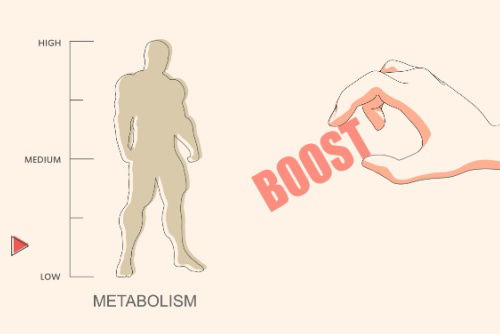Liver Gene May Boost Metabolism

Recently, at the University of Southern Denmark, scientists made a unique discovery that could reshape weight-loss strategies by improving metabolic processing in the liver. Their study of mice, published in Cell Metabolism, focuses on a gene called plasmalemma vesicle-associated protein (PLVAP or PV-1), which plays a key role in how the liver regulates energy metabolism during fasting.
When researchers suppressed this PLVAP gene in mice, they discovered that the liver bypassed its usual metabolic response. Instead of shifting from burning carbohydrates to oxidizing fat, which is commonly referred to as “starvation mode,” the liver continued to burn carbohydrates (sugar), while redirecting fatty acids to muscle tissue, and without adverse effects.
Most importantly, the Danish discovery shed light on the physiological mechanism behind the dreaded weight-loss plateaus, where are a well-known challenge for obese or overweight individuals who are trying to lose significant amounts of weight. Disruption of the PV-1 gene suggests new opportunities for science to potentially overcome this natural adaptation that’s linked to human’s fight-or-flight response.
NOTE: The University of Southern Denmark’s PLVAP study on metabolism was initially published in the journal Cell Metabolism. The team of research scientists included Daniel Hansen, Jasmin Jensen, Christian Andersen, Peter Jakobsgaard, Jesper Havelund, Line Lauritsen, Samuel Mandacaru, Majken Siersbæk, Oliver Shackleton, Jonathan Brewer, Blagoy Blagoev, Nils Færgeman, and Kim Ravnskjær (all from SDU). Collaborators from Japan, the USA, and Finland. Danish scientists suggest that targeting the PV-1 gene could be key to overcoming common barriers by offering new hope for those with significant weight-loss goals.
How Cells Trigger Metabolic Changes
Advancements in genetic research have uncovered a potential breakthrough in understanding how the liver manages energy during fasting, which could reshape weight management strategies and treatment of metabolic disease. The Danish study’s findings also have exciting implications for development of new treatments and protocols to complement existing metabolic-related medications like MRC’s compounded .
Receptor agonists have recently paved the way for using the incretin mimetics to jumpstart a person’s weight loss journey. By mimicking the natural hormone, it slows gastric emptying to reduce appetite making it easier to naturally limit calorie consumption. But, by suppressing release of the PV-1 protein into hepatic stellate cells, it allows the liver to maintain high carbohydrate utilization by redirecting fatty acids to skeletal muscles.
Scientists will now aim to mitigate the body’s natural resistance to fat oxidation, as the study highlights the mechanism of cell-to-cell signaling in the liver during calorie consumption. Such innovative scientific solutions could potentially provide a more sustainable and efficient framework for weight management strategies by eliminating annoying metabolic slowdowns. Once again, the science of weight loss is offers new hope for those individuals needing long-term solutions.
Kickstart Your Journey for Weight Control
By continuing to explore the role of PLVAP in liver metabolism and energy regulation, researchers hope to unlock further opportunities for sustainable weight loss and improved blood glucose management. This exciting progress represents a significant step forward in addressing the challenges of long-term weight management with improvements to metabolic health and well-being. Moreover, these advancement could significantly reshape how obesity and weight-related metabolic disorders are managed.
For individuals struggling with weight-related challenges, medications represent a groundbreaking advancement in the field of weight management. These prescription injectables reduce food cravings, slow gastric emptying into the intestinal tract and support processes that improve overall metabolic efficiency without the constant battle against hunger or reliance on highly restrictive diets. At MRC Cheyenne, our team can also provide strategies to help clients overcome setbacks from weight loss plateaus.
With over 35 years of proven results, Metabolic Research Center provides the science-based support, one-on-one coaching and tools required to transform your metabolic well-being. Visit us today at the medical weight loss clinic Cheyenne to see how our experienced team can help you achieve your weight management goals. All it takes is a quick email or phone call to learn more about science-based plans. Don’t forget to schedule a free consultation as your first step toward improved metabolic health and wellness.
By submitting this form, you agree to receive marketing text messages from us at the number provided, including messages sent by autodialer. Consent is not a condition of any purchase. Message and data rates may apply. Message frequency varies. Reply HELP for help or STOP to cancel. View our Privacy Policy and Terms of Service.

